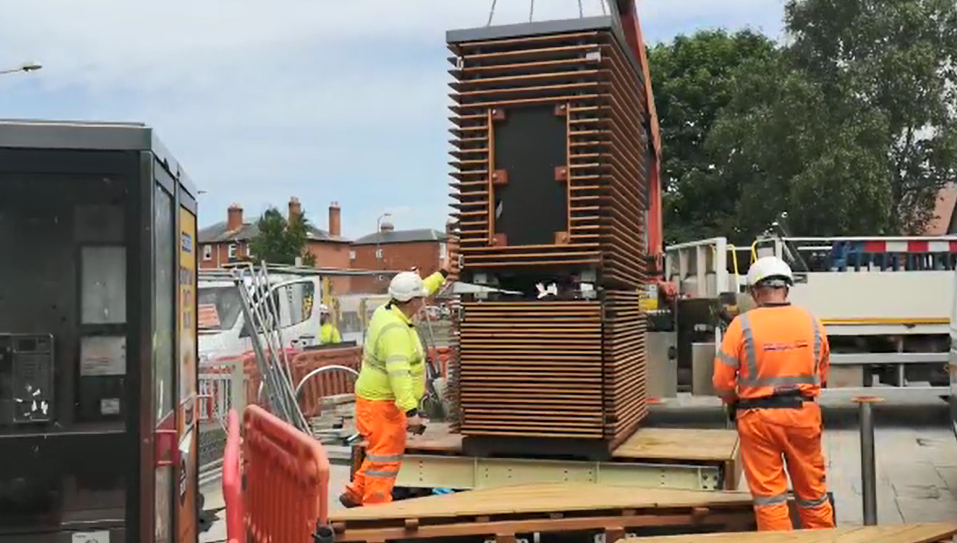A new, natural way of helping to tackle air pollution is coming to Hereford on Wednesday 15 June, when the first of three moss filters will be installed in the City.
Moss is one of nature’s best air filters. Moss has the natural ability to absorb and metabolise fine dust and particles, helping to naturally clean the air we breathe. Moss also stores and evaporates large amounts of moisture which cools the air.
Also known as ‘city trees’ the moss filters each take up about the same amount of space as one tree, however due to the enormous surface area of moss the moss filter is more efficient at filtering and cooling the air around it.
The innovative moss filters have been funded jointly by the council and Marches LEP as part of the ongoing £6m Hereford City Centre Improvement project, which is enhancing the City Centre environment thanks to investment to encourage people to spend more time in the City when they visit, helping to boost the local economy.
Moss mats clean about 80% of fine dust and particles from the air, and using ventilation technology filters breathing air for up to 7,000 people per hour.
The moss filters will be located in busy traffic areas in the City where they will use specially selected mosses to help naturally absorb pollution from the air. The first is being installed at Eign Gate.
The moss filters contain integrated smart sensors which provide performance and condition information, so the impact on the local air quality will be available for all to see on the council’s website.
Cllr John Harrington, Cabinet member infrastructure and transport, said:
“I am really pleased that we are bringing moss filters to Hereford. This innovative technology provides us with another small but significant step towards cleaner area in the City, which is important for everyone.”
“We are working hard in a number of ways to reduce emissions from vehicles in our beautiful, historic City with the aim of cleaner, healthier air for visitors but that takes time. Nature is lending us a helping hand towards this in the meantime. In London in Waltham Forest and in the City of Cork in Ireland, these moss towers have already been working hard filtering the low hanging pollution we have to deal with every day.
“Moss works differently to trees. Like trees, moss is great at converting carbon dioxide into oxygen, however moss also actually absorbs pollution particles from the air – metabolising and converting them into natural and harmless biomass. The particles it cannot use are bound in the sediment of the moss. And with their excellent moisture storing ability, the moss filters also work more efficiently to cool the air around them.
“I understand one moss filter captures carbon dioxide equivalent to 28 beech trees and cools the air around it like three mature winter lime trees. While trees are also playing an important role in our efforts to improve air quality across the City, the moss filters provide a boost in busy traffic areas where there is higher pollution but little space.”
The first moss filters are being installed in the same week as Clean Air Day, the UK’s largest air pollution campaign, which this year is on Thursday 16 June.
Air pollution causes heart and lung disease and results in over 36,000 people in the UK dying each year. Clean air is essential for our health, and clean air measures are good for our wellbeing as well as being good for the planet.
For more about Clean Air Day, see www.actionforcleanair.org.uk
City Trees are set to be installed in Hereford to help reduce pollution and make the city greener.
The large ‘City Trees’ are actually more like large units and don’t really look anything like trees, but they help to take in particulates and nitrogen oxides whilst simultaneously producing oxygen.
“City Trees” are a unique and bespoke product that provides a moss filtration system to improve air quality.
Three City Tree units are set to be purchased, with a decision agreed by Herefordshire Council to award a contract to purchase three “City Tree” units as part of the HCCI project within a value of £189,294.30.




